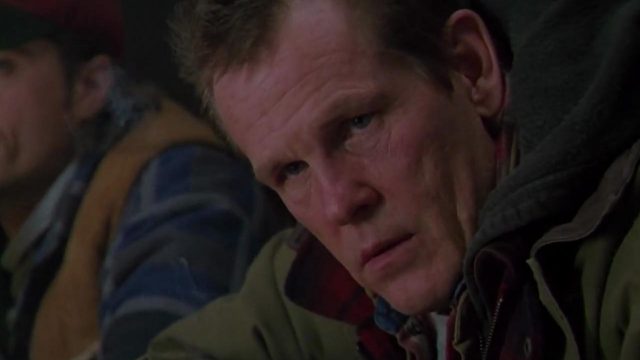You ever have one of those moments in your life when it feels like everything is falling apart?
I know I have. You probably have too at some point, even if it was only a fleeting moment. And that’s usually what it is, a fleeting moment. You eventually settle down, realize that something you thought was catastrophic is in fact benign, begin to think more clearly, and eventually the sun goes down and a new day begins.
But it’s not like that for everyone. Sometimes you hear about them on the news — a seemingly normal individual who one day just snaps. They commit some act of shocking violence, or some absurd antisocial behavior. A guy in Colorado makes his bulldozer into an impenetrable “Killdozer” and goes on a rampage across town over a zoning dispute. Or a documentarian and political activist finds himself naked and masturbating in public as soon as he has worldwide attention on him. Just stuff that makes you stop for a moment in your day and go “What the hell did he do that for?”
Affliction is a film about that kind of moment.
Filmed in 1997 and released in 1998, Paul Schrader’s Affliction is of a piece with that filmmaker’s body of work covering the neuroses and failures of deeply flawed men who don’t quite fit into society; in fact, most of his films could probably be subtitled “Affliction.”
Nick Nolte plays Wade Whitehouse, the only cop in a small town in New Hampshire.* It’s the kind of snowbound little community where everyone knows everyone and knows everyone’s past and thinks they know what everyone’s capable of. Nolte’s divorced, and his only child, his daughter Jill, lives primarily with his ex-wife, and is increasingly alienated from him. He wants to be a good dad but he just can’t seem to get anything right. Early scenes take place on Halloween night, as Wade tries to push his daughter into a costume contest with kids she doesn’t know, gets into a childish argument with her, and winds up having a brief physical altercation with his ex-wife’s new husband. They are cringingly painful moments: the kind of everyday mortifications that broken families find themselves in too often.
*Nick Nolte as a morally compromised cop? Sounds unusual for him.
But Nolte’s Wade looks like Father of the Year (at least early on) compared to his own father, Glen, played by James Coburn in an Oscar-winning performance. Glen is a bitter old drunk obsessed with manliness and toughness, whose propensity for physical violence gave Wade and his younger brother Rolfe (Willem Dafoe) the “affliction” — the inability to live one’s life without either bursts of violence or a painfully constrained rage at all times.
The performances of Nolte and Coburn are perfect. The way that Nolte, a man of intimidating size and bearing, manages to shrink to a childlike vulnerability in Coburn’s presence, is astonishing, and communicates more effectively the affliction, the cycles of violence, than some of the more writerly monologues and voiceovers that Dafoe gets at points in the film. Coburn’s Glen Whitehouse is a terrifying stand-in for countless abusive fathers over the years, particularly of a certain generation; men who mistook emotional honesty for weakness, and power for love. In Coburn’s scenes — both as the aged retiree and in flashbacks (filmed in 16mm like demented home movies) as the domineering younger man — we feel the suffering, pain, and anger, and all the psychic wounds that have festered in guy like Wade Whitehouse for fifty years before those wounds finally grow infected and taint the whole personage.
The rage — at his father, at his divorce, at his distance from his kid — builds up while Wade begins suspecting that a recent hunting accident involving a wealthy businessman was foul play, and as a gnawing toothache turns not just his mind but his body against himself. Bit by bit, injury by injury, we watch as Wade gradually destroys the very things that keep him tethered to a normal life, as he slowly gives in more and more to the anger and the violence that have been in him since childhood. In the end, he seems to lose everything, partly by chance, but mostly by choice.
It’s a dark film, undoubtedly, but in its clarity of purpose — its clear-eyed vision in showing how violence begets more violence, and how an individual’s seemingly bizarre and shocking choices can seem to them totally motivated — it is like a light piercing through darkness.
Not everything about the film is as good as the central performance of Nolte, or the strongly conveyed legacy of hate and fury seen in Schrader’s direction; the hunting accident/foul play plotline feels a bit more Scooby Doo than it should. But in the film’s beating heart, in its battle between the hot blood of violent individuals and the structures that keep them sane and safe, the film shows why Paul Schrader has been one of America’s greatest filmmakers for more than forty years.


